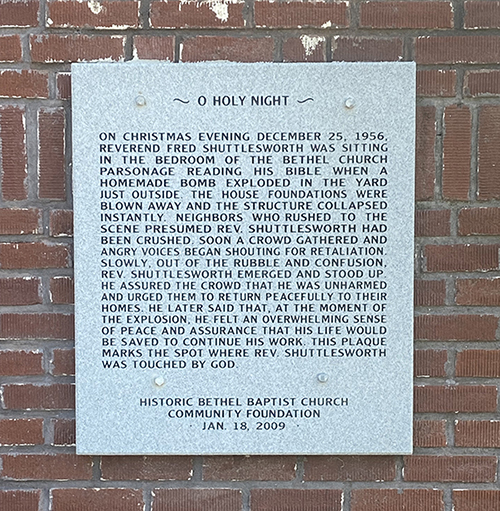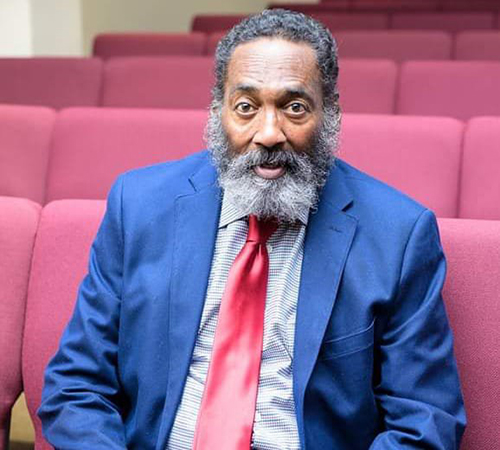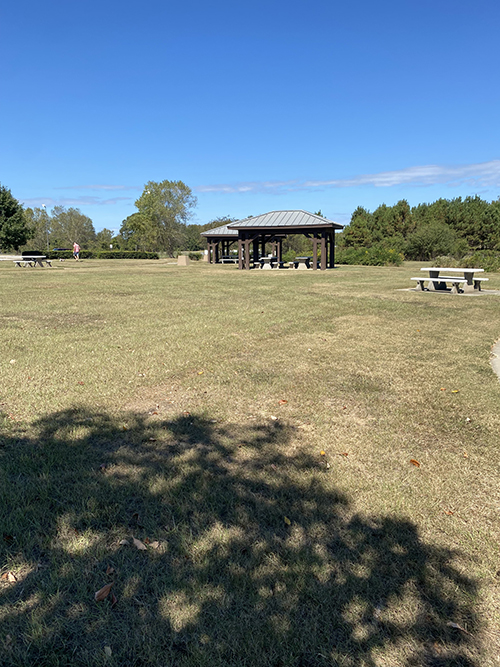We all have an obligation to stand up for what's right.
February 23, 2023
During Black History Month, we remember and honor key leaders in the struggle for civil rights—Rosa Parks, Martin Luther King, Jr., John Lewis, and many others. But it’s important to also reflect on the thousands and thousands of “ordinary” people who risked their lives and rose to the fight for justice.
Last year, I had the privilege of participating in a pilgrimage to several historic sites in Alabama that were critical in the civil rights movement. The trip was organized by the United Theological Seminary and led by Rev. Dr. C. Anthony Hunt. Dr. Hunt has been hosting pilgrimages to Alabama, which he calls the “fertile crescent of human rights,” for over 20 years. Our tour group was comprised of about 24 racially diverse men and women from varied backgrounds, although most were pastors and seminary students.

We visited several historical sites, including the 16th Street Baptist Church in Birmingham, where four young girls were killed in 1963 in a bombing orchestrated by white supremacists; Bethel Baptist Church, where Rev. Fred Shuttleworth launched the Alabama Christian Movement for Civil Rights in 1956; and the Edmund Pettus Bridge, where hundreds of civil rights activists, who were marching to protest the denial of voting rights, were beaten by police in 1965. At the end of our tour, we visited the Legacy Museum and the National Memorial for Peace and Justice in Montgomery.
I knew much of this history before. But standing on the ground where it happened and hearing the testimony of witnesses to the struggle changed my perceptions.
I learned the about the importance of churches to the movement. People were prohibited from organizing in other spaces; church became the last place in the community where organizers could do this work. I was struck by the power of worship to give people strength to do hard things.
I learned about the steadfast bravery of many lesser-known heroes. Rev. Fred Shuttleworth, who endured the bombing of both his church and his home, was also beaten by the KKK when he and his wife tried to enroll their daughters in a school. The airport in Birmingham, Alabama, is named after him.

Most of all, I learned the movement was propelled and sustained by ordinary people—people who understood that the laws had to change. We heard testimony from members of the 16th Street Baptist Church, who knew the families of the children killed in the bombing. I tried to imagine what it had been like to rebuild the church, and continue to worship there, after so much horror. We visited a museum that included the site of a tent city that was built for people who lost their jobs and their housing, simply because they dared to vote. We spoke to a woman whose sister, at age 17, was arrested and beaten for marching in a nonviolent protest. She recalled that, after her release, she came home, fell on the floor, and cried for three weeks. I remembered stories told by my uncle, Forrest Sawyer, Jr., who was jailed for protesting segregation for nearly two months—when he was only 15 years old.

Our country and our civil rights are still at a crossroads. The stories I heard in Alabama resonated with much of what I see happening in communities across the country. Today, we wrestle with an enormous racial wealth gap, political disenfranchisement, and glaring disparities in health, education, employment, and housing among people of color. Even worse, we’re watching many of the most significant protections against discrimination erode before our very eyes.
Yet, these problems are solvable. We can ease the racist impact of the criminal legal system by ensuring that people with criminal records have equitable access to housing and employment opportunities. We can prevent a disproportionate percentage of Black children from entering the foster system by ensuring that their families receive the economic and social supports they need. We can end the subminimum wage for tipped workers, which is a legacy of slavery. We can reform the educational system to ensure that all children have equal opportunity to attend good schools.
I came away from my pilgrimage inspired by the commitment of ordinary people to racial and economic justice. Policies and laws that create and perpetuate poverty were designed with race in mind. Working together, we can fight injustice and champion equity. We all have an obligation to stand up for what’s right. We are the ones we’ve been waiting for. Join me in the fight.
Our laws and policies must support people by ensuring fair work at a living wage and by providing the income supports families need to be successful.
Our policies and laws must value families, center communities, and end racial inequities.
Everyone deserves access to affordable, comprehensive, culturally appropriate healthcare, no matter their income, race, gender, or where they're from.
All people should have the right to a safe, stable home to build better futures for themselves and their families.